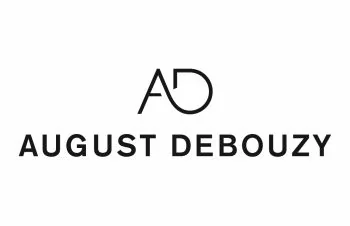In his speech delivered on May 8, 2018, the President of the United States ("US"), Donald Trump, announced his decision to cease the US participation in the Joint Comprehensive Plan of Action ("JCPOA"), commonly known as the "Iran nuclear deal". The purpose of this article is to analyze the legal consequences of this decision for the non-US persons, such as European companies, currently engaged in business transactions in Iran or with Iranian persons.
Full reinstatement by November 4, 2018 of the former US sanctions applicable before the implementation of the JCPOA
The major consequence of the US withdrawal from the JCPOA is the full reinstatement by November 4, 2018 of all the Iran-related US sanctions whose application was suspended following the entry into force of the JCPOA on January 16, 2016. To this end, the US President issued a National Security Presidential Memorandum ("NSPM") whereby he requests US Secretary of State and Secretary of Treasury to immediately take measures towards the re-imposition of all US nuclear related sanctions against Iran that were lifted or waived pursuant to the JCPOA. Consequently, the Frequently Asked Questions published by the US Office of Foreign Assets Controls ("OFAC") after the US President announcement state that OFAC expects that all the US nuclear-related sanctions that had been lifted under the JCPOA will be re-imposed and in full effect.1
The full reinstatement of the Iran-related US sanctions also means that Iranian individuals and entities that were removed from the Specially Designated Nationals and Blocked Persons List ("SDN List") as a result of the implementation of the JCPOA, will be added to the SDN List by November 4, 2018. OFAC thus suggests that non-US persons should wind down their activities involving entities and individuals that will be re-added on the SDN List as a consequence of the US withdrawal from the JCPOA.2
Finally, the OFAC expects that general and specific licenses that allowed US persons and/or US-owned or -controlled foreign entities to engage in certain activities with Iran will be also revoked by November 4, 2018. This includes the authorization that was granted under General License H to US-owned or -controlled foreign entities to perform certain activities in Iran. They are thus required to wind down all their Iran-related activities before the expiry of the wind-down period.
Such re-imposed US sanctions will not have the retroactive effect. They will thus not apply to transactions that were legally carried out in accordance with the terms of the JCPOA before the reinstatement of the sanctions. However, the transactions related to the contracts signed before May 8, 2018, which would be conducted after the reinstatement of the sanctions, could be sanctionable to the extent they implicate activity for which sanctions have been re-imposed.
Wind-down periods of 90 and 180 days for activities that will become subject to sanctions
The announcement made by the US President on May 8, 2018 does not trigger the immediate reinstatement of the Iran-related US sanctions applicable before the implementation of the JCPOA. Indeed, the US and non-US persons benefit from 90-day or 180-day "wind-down periods" that allow them to withdraw from the activities involving Iran that were consistent with the provisions of the JCPOA and established before May 8, 2018 but may become subject to the re-imposed US sanctions. To this end, the US Government will maintain sanction waivers during the wind-down periods.
The 90-day wind down period, which will expire on August 6, 2018, applies to the sanctions related to the following activities:
- Purchase or acquisition of US dollar banknotes by the Government of Iran;
- Iran's trade in gold or precious metals;
- Direct or indirect sale, supply, or transfer to or from Iran of graphite, raw, or semi-finished metals such as aluminum and steel, coal, and software for integrating industrial processes;
- Significant transactions related to the purchase or sale of Iranian rials, or the maintenance of significant funds or accounts outside the territory of Iran denominated in the Iranian rial;
- Purchase, subscription to, or facilitation of the issuance of Iranian sovereign debt; and
- Iran's automotive sector.3
The 180-day wind-down period, expiring on November 4, 2018, concerns the sanctions related to the following activities and sectors:
- Iran's port operators, and shipping and shipbuilding sectors, including on the Islamic Republic of Iran Shipping Lines (IRISL), South Shipping Line Iran, or their affiliates;
- Petroleum-related transactions with, among others, the National Iranian Oil Company (NIOC), Naftiran Intertrade Company (NICO), and National Iranian Tanker Company (NITC), including the purchase of petroleum, petroleum products, or petrochemical products from Iran;
- Transactions by foreign financial institutions with the Central Bank of Iran and designated Iranian financial institutions under the National Defense Authorization Act for Fiscal Year 2012;
- Provision of specialized financial messaging services to the Central Bank of Iran and Iranian financial institutions set out in the Comprehensive Iran Sanctions and Divestment Act of 2010;
- Provision of underwriting services, insurance, or reinsurance; and
- Iran's energy sector.4
During the aforementioned 90-day and 180-day « wind-down » periods, the businesses that are currently involved in activities that will become subject to the re-imposed US sanctions shall disengage from Iran in order to avoid any violation of US laws. Indeed, OFAC suggests that non-US, non-Iranian persons are advised to use these time periods to wind down their activities in Iran that will become sanctionable at the end of the applicable wind-down period.5
OFAC clarifies that even after the expiry of the wind-down periods, non-US, non-Iranian persons can still receive payments they are owed for goods or services fully provided or delivered to Iranian counterparty before August 6, 2018 or November 4, 2018, pursuant to a legal written contract entered into before May 8, 2018. Likewise, non-US, non-Iranian persons can receive repayments for loans or credits extended to an Iranian counterparty prior to the end of the 90-day or 180-day wind-down periods, as applicable, provided that such loans or credits were extended pursuant to a written contract or written agreement entered into prior to May 8, 2018, and such activities were consistent with US sanctions in effect at the time the loans or credits were extended.6
Finally, it is generally recommended that non-US persons should not engage during the wind-down periods in any new activity that is likely to become sanctionable after August 6, 2018 or November 4, 2018. Indeed, this transition period should be used for companies to disengage from the activities that will be subject to sanctions. Should a company not be able to disengage from its activity in Iran before the expiry of the wind-down periods, the efforts made during the transition period after May 8, 2018 will be taken into consideration by OFAC when considering a potential enforcement or sanctions action with respect to activities engaged in after August 6, 2018, or November 4, 2018.7
No effect on the currently-suspended EU and UN sanctions
The US unilateral decision to cease its participation in the JCPOA does not have any impact on the currently-suspended European Union ("EU") and United Nations ("UN") sanctions against Iran. The waivers of such sanctions still remain in place as the JCPOA continues to be applicable between Iran and the other signatories of the agreement, namely France, Germany, the United Kingdom, the European Union, China and Russia.
In a joint press release, the leaders of France, Germany and the United Kingdom expressed their regret about the US decision to withdraw from the JCPOA and committed to continue to comply with the terms of the agreement. The Iranian president, Hassan Rouhani, confirmed that Iran would remain committed to the JCPOA and that it would wait and see the reactions of the remainning signatories. He also added that the JCPOA can survive if Iran is granted sufficient guarantees from its international partners.
The EU has consistently stated that in a very unlike that the EU sanctions were to be reinstated, these sanctions will not apply with retroactive effect and the contracts concluded before the re-imposition of the sanctions will be permitted and adequately protected.8
Actions to be taken by European companies currently involved in transactions with Iran
The reinstatement of the currently-suspended US sanctions does not mean that all activities carried out by non-US persons in Iran will become illegal after the expiry of the wind-down periods. Only those sanctions that were waived as a result of the implementation of the JCPOA will be reinstated for now. Such sanctions concern some sectors of Iranian economy only.
Therefore, European companies that are currently involved in business transactions with Iran shall verify whether their Iranian-related activity is likely to be subject to the US sanctions after the expiry of the wind-down periods. Should this be the case, it is recommended that they should disengage from such activity in order to avoid future US sanctions. However, businesses should be attentive to the outcome to work underway by the EU institutions and discussions taking place between the EU, its Member states and the US Government, aiming to clarify the precise extent of the exposure of European companies to the US sanctions.
In addition, all European companies currently involved in transactions with Iran shall regularly verify the identity of their Iranian business partners in order to determine whether their names appear on the revised SDN List.
Finally, businesses should follow future announcements made by the US administration as new sanctions may be imposed in addition to those that were suspended following the implementation of the JCPOA. The US administration should provide shortly more precise guidelines on the enforcement of the US sanctions after November 4, 2018.
Footnotes
1 Frequently Asked Questions Regarding the Re-Imposition of Sanctions Pursuant to the May 8, 2018 National Security Presidential Memorandum Relating to the Joint Comprehensive Plan of Action ("FAQ"), Question 1.1, p.1.
8 Recital 7 of EU Regulation 2015/1861.
The content of this article is intended to provide a general guide to the subject matter. Specialist advice should be sought about your specific circumstances.





